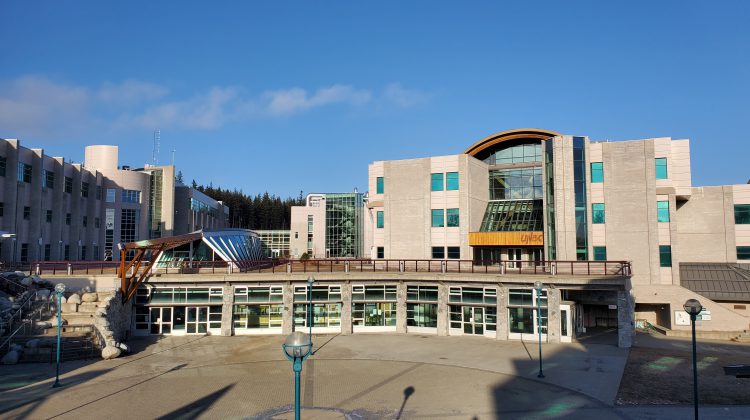(Files by Brendan Pawliw-MyPGNow)
The Ministry of Health is investing in Interior research universities across the province including UNBC to understand the harmful effects of COVID-19 and mitigate its impact on communities.
The government has funded five collaborative research projects through the Interior University Research Coalition (IURC), a partnership between Thompson Rivers University, the University of British Columbia, Okanagan (UBCO), and UNBC.
The projects being funded range from identifying the effects of the pandemic on the mental health and well-being of people living in rural communities to developing telehealth programs that will engage older adults outside urban centres.
In addition, other projects include a focus on improving the lifespan of N95 masks, as well building a better understanding of whether new technologies are improving the resiliency of rural health-care practitioners.
The ministry has provided $150,000 to launch this initiative.
“When researchers from different institutions collaborate across disciplines, the research outcomes benefit from different perspectives and synergies that result from cross-institutional collaboration,” says Kathy Lewis, acting vice-president, research, at UNBC. “These projects are fantastic examples of what’s possible when researchers from across the B.C. Interior come together and seek solutions to pressing public health concerns.”
About the projects:
· Shannon Freeman, associate professor in UNBC’s School of Nursing, has partnered with Piper Jackson, assistant professor of computer science at TRU, to develop a COVID-19 risk assessment tool that identifies home care clients who are at greatest risk of contracting the virus.
· Jian Liu and Abbas Milani of UBCO’s School of Engineering will be working with Hossein Kazemian of UNBC to improve the lifespan of nanofibers and activated carbon mats in N95 masks.
· Brodie Sakakibara, assistant professor in UBCO’s Southern Medical Program and investigator in the Centre for Chronic Disease Prevention and Management, is working with researchers at UBCO, UNBC, and Interior Health to create a student-delivered Community Outreach Telehealth Program that will engage older adults from outside urban centres and establish best practices for providing health support during a pandemic.
· TRU’s Bala Nikku has teamed up with Khalad Hasan from UBCO and Rahul Jain from UNBC to better understand whether new technologies are improving the resiliency of rural healthcare practitioners.
· Nelly Oelke, associate professor in UBCO’s School of Nursing, and scientific director of the Rural Coordination Centre of BC, will be collaborating with UBCO’s Donna Kurtz, UNBC’s Davina Banner-Lukaris, and TRU’s Bonnie Fournier, to expand ongoing research that explores the mental health impacts of climate change events. The new study will identify the effects of the pandemic on the mental health and wellbeing of people living in rural communities to help foster resilience.
Something going on in the Cariboo you think people should know about?
Send us a news tip by emailing [email protected].










